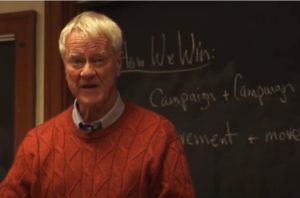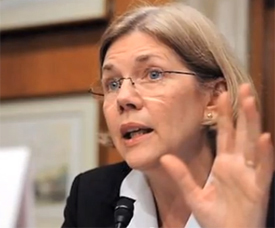Seth Reinvented Economics this Morning
The first thing I do when I get online each morning is read a few things:
- Poems of the day from Rattle, The Academy of American Poets, and Second Coming.
- Heather Cox Richardson and Robert Hubble for analysis of the craziness in the US government right now and how people are fighting back.
- Seth Godin for his deep insight, creative thinking, and common sense in the business and learning worlds, and news roundups from among The Guardian, New York Times, and/or Associated Press. (Disclosure: I donate to The Guardian and Associated Press)
- Bob Burg, with his daily sermon on succeeding by treating people right, is often on the list.
Today, Godin opened my eyes to a completely new understanding of economics with one sentence:
The price variation in any market reflects not what the market will bear, but what the people in that market can bear to charge.
Brilliant. And I don’t think I’ve come across this anywhere else. It changes everything, doesn’t it?
He backs up his thesis with examples as different as the pricing of luxury handbags and concert tickets. He discusses how rock musicians who allow promoters to scale tickets out of the range of affordability for most of their fans pay a price in loyalty. And he talks about how that particular dynamic came out of outsourcing concert pricing to third party vendors like Ticketmaster who don’t really give a flying f about the fans as long as they can find enough who are willing to pay hundreds of dollars when they could just as easily spend $10 on a movie in the theater or nothing to watch it at home.
I’ve made those choices many times. I paid $6 in 1972, as a 15-year-old without a lot of cash, to see the Rolling Stones in Madison Square Garden. That’s only $46.24 in today’s money. Most of the time, if a concert or theater ticket is more than $100, I will choose a different form of entertainment. I think I have made four exceptions: The Who, my all-time favorite rock band that I had never seen in concert; tickets for touring Broadway productions of “Hamilton” and “Wicked”; also an actual Broadway show, but I’m not sure which one it was.
The three that I remember were actually worth the money and I didn’t regret spending it. But if I had spent that much for some of the mediocre concerts I’ve seen by top acts, I would have been furious, feeling totally ripped off. I saw many of them as either a concert reviewer or an usher, and thus didn’t pay to be ripped off. But it was frustrating even to give up an evening for something that wasn’t worth it and was charging a lot, even though I wasn’t paying. it was an insult to the fans.
But concerts are by definition discretionary purchases. Let’s look at price elasticity in other contexts that Seth didn’t mention—such as necessities.
Many have jumped in price far beyond inflation. Housing is one of them. But housing is something we have to have. Other societies consider housing a basic right. There is no homelessness problem in Cuba. Medical care and higher education, two other sets of services that have shot up in price here in the US, are also provided to everyone there. But they have an authoritarian government and they have deep poverty.
When I visited in 2019, the biggest complaint that I heard, and I heard it from almost everyone I met, is the inability of wages to keep up with the cost of living. Most workers make about $20 US a month. Doctors make $60 or $70. Our guide told us that the only reason his wife is able to afford to be a doctor is because he makes far more than the typical Cuban income from his clients’ tips. Sometimes, it is about trade-offs.
But sometimes, it’s not. Europe proves that decent, democratic governments can afford to treat healthcare as a right and keep higher education extremely affordable as well (housing, not so much). And they’ve also made huge progress in greening the economy.
China also has an authoritarian government. But the streets of its cities are crowded with relatively inexpensive electric cars (which is to say, still totally out of reach for most Chinese—but enough can afford them that massive traffic jams are common). This transition was quite conspicuous between my first trip to China in 2016 and my return in 2024. I rode in several of them and was impressed with how well they seem to be designed. Those stubborn trade-offs with their moral dilemmas.
Yet, for the past year, we have an authoritarian government in the US. The ugliness of its actions and policies would have been unthinkable just a few years ago.
But unlike Cuba and China, the benefits are not accruing to ordinary people. This government is about benefiting billionaires and openly, blatantly lining its leader’s and his friends’ pockets while collecting undeserved and insincere tributes from those who understand that they can flatter their way to what they want, even if they want things that are absolutely at odds with the interests of us ordinary people.
Seth’s thesis is not the whole picture, though. It’s a both-and, not an either-or. Price sensitivity is certainly an issue in purchase decisions—but so is sensitivity to what your market could pay without feeling exploited and ripped off. In my own business, I’ve kept my pricing far lower than most, because that makes me affordable to the solopreneurs and microbusinesses I enjoy serving. I don’t want to live in the corporate world enough to charge too much for my preferred clients, and those huge corporations have in-house people who do what I do. I also recognize that money is one means to an end, and there are others—such as what I referred to earlier: volunteering or reviewing instead of buying tickets
It is also quite possible to make a good profit serving the bottom economic tier. I recommend two great books on this: The Fortune at the Bottom of the Pyramid: Eradicating Poverty Through Profits by C.K. Prahalad (out of print; that’s a link to a used copy) and Business Solution to Poverty by Paul Polak and Mal Warwick. That link takes you to bookshop.org, where your purchase supports the independent bookstore of your choice instead of lining the pockets of an oligarch who has aided and abetted the authoritarian government that has taken over the US.





